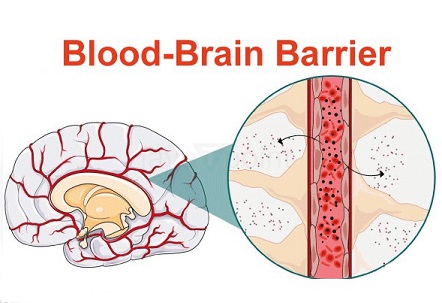Nikhil Prasad Fact checked by:Thailand Medical News Team May 07, 2024 11 months, 2 weeks, 5 days, 14 hours, 24 minutes ago
Med News: Understanding the Blood-Brain Barrier
The blood-brain barrier (BBB) is a critical defense mechanism that safeguards the brain from harmful substances while allowing essential nutrients to pass through. This barrier, composed of specialized cells, presents a formidable challenge for drug delivery in treating neurological disorders. However, recent groundbreaking research led by Dr Rosemary Cater from the University of Queensland's Institute for Molecular Bioscience that is covered in this
Med News report, has shed light on potential pathways for drug delivery into the brain.
 The Secrets Of Brain Drug Delivery: Insights From Choline And FLVCR2
The Role of Choline in Brain Health
The Secrets Of Brain Drug Delivery: Insights From Choline And FLVCR2
The Role of Choline in Brain Health
Choline, an essential nutrient vital for brain development and function, plays a crucial role in various physiological processes. It is necessary for cell regeneration, gene expression regulation, and neurotransmitter signaling. Despite its significance, the mechanisms governing choline's entry into the brain have long remained a mystery.
Unveiling FLVCR2 as a Key Player
Dr Cater's team made a pivotal discovery regarding the transportation of choline into the brain. They identified FLVCR2, a protein responsible for transporting choline across the blood-brain barrier. This finding marks a significant advancement in understanding how essential nutrients reach the brain's vital regions.
The FLVCR2-Choline Interaction: A Molecular Journey
Utilizing cutting-edge cryo-electron microscopes, Dr. Cater's team delved into the intricate interaction between choline and FLVCR2. They observed that choline binds to a specific cavity within FLVCR2, secured by a cage of protein residues. This molecular insight provides a blueprint for designing drugs that mimic choline's structure, thereby leveraging FLVCR2's transport mechanism to deliver therapeutic agents to targeted areas within the brain.
Implications for Neurological Disorders
The implications of this research extend far beyond understanding nutrient uptake. By deciphering the molecular intricacies of choline transport, scientists are poised to revolutionize drug delivery for neurological disorders like Alzheimer's disease and stroke. The ability to harness FLVCR2's transport capabilities offers a promising avenue for developing precise and effective treatments.
Choline-Rich Diets and Brain Health
In addition to the pharmacological advancements, the research underscores the importance of dietary choline. Foods such as eggs, vegetables, meat, nuts, and beans, rich in choline, play a vital role in maintaining brain health. A balanced diet not only supports overall well-being but also contributes to optimizing brain function through the supply of essential nutrients.
Structural Insights: FLVCR2's Role in Choline Uptake
Fur
ther elucidating FLVCR2's role, both in vivo and in vitro studies confirmed its significance as a choline transporter across the BBB. The structural analysis of choline-bound FLVCR2 in different states revealed crucial details about how FLVCR2 facilitates choline uptake. This molecular-level understanding opens avenues for targeted drug delivery strategies tailored to the brain's unique physiology.
Future Directions in Brain Drug Delivery
The discoveries surrounding FLVCR2 and choline pave the way for a paradigm shift in drug delivery to the brain. By leveraging FLVCR2's mechanisms, researchers aim to develop innovative therapies with enhanced precision and efficacy. This could potentially revolutionize the landscape of neurological treatments, offering hope to millions affected by brain-related disorders.
Challenges and Opportunities Ahead
While the research marks a significant leap forward, challenges remain in translating these findings into clinical applications. Overcoming barriers such as drug stability, dosage optimization, and long-term efficacy will require collaborative efforts across disciplines. However, with continued advancements in molecular biology, pharmacology, and nanotechnology, the prospect of targeted brain drug delivery is within reach.
Conclusion: A New Era in Brain Health
In conclusion, the discovery of FLVCR2's role in choline transport represents a cornerstone in neuroscience and drug development. The intricate interplay between nutrients, proteins, and the blood-brain barrier unveils new possibilities for combating neurological disorders. As research progresses, integrating these findings into therapeutic interventions holds immense promise for improving brain health and quality of life worldwide.
The study findings were published in the peer reviewed journal: Nature.
https://www.nature.com/articles/s41586-024-07326-y
For the latest
Med News, keep on logging to Thailand Medical News.
